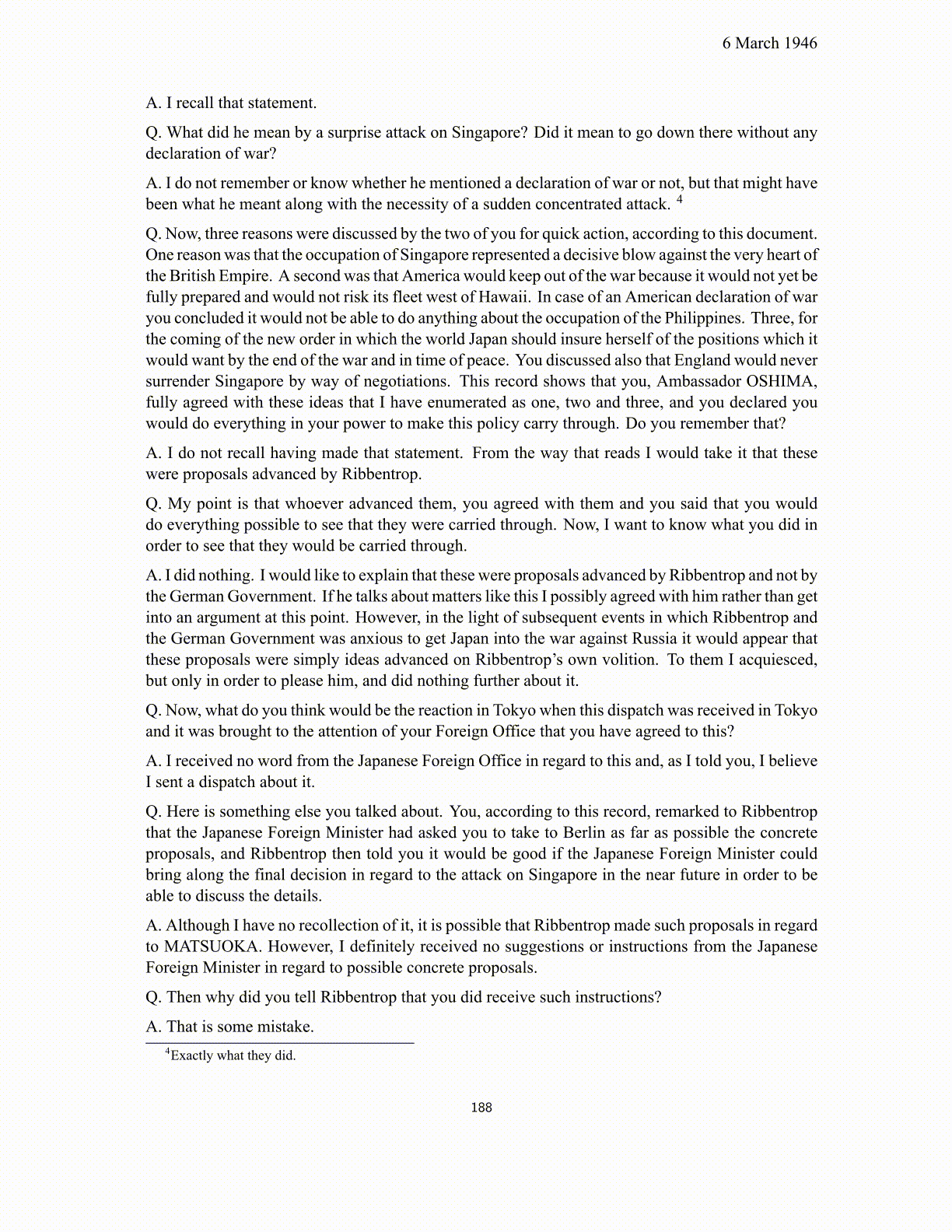
6 March 1946 A. I recall that statement. Q. What did he mean by a surprise attack on Singapore? Did it mean to go down there without any declaration of war? A. I do not remember or know whether he mentioned a declaration of war or not, but that might have been what he meant along with the necessity of a sudden concentrated attack. 4 Q. Now, three reasons were discussed by the two of you for quick action, according to this document. One reason was that the occupation of Singapore represented a decisive blow against the very heart of the British Empire. A second was that America would keep out of the war because it would not yet be fully prepared and would not risk its fleet west of Hawaii. In case of an American declaration of war you concluded it would not be able to do anything about the occupation of the Philippines. Three, for the coming of the new order in which the world Japan should insure herself of the positions which it would want by the end of the war and in time of peace. You discussed also that England would never surrender Singapore by way of negotiations. This record shows that you, Ambassador OSHIMA, fully agreed with these ideas that I have enumerated as one, two and three, and you declared you would do everything in your power to make this policy carry through. Do you remember that? A. I do not recall having made that statement. From the way that reads I would take it that these were proposals advanced by Ribbentrop. Q. My point is that whoever advanced them, you agreed with them and you said that you would do everything possible to see that they were carried through. Now, I want to know what you did in order to see that they would be carried through. A. I did nothing. I would like to explain that these were proposals advanced by Ribbentrop and not by the German Government. If he talks about matters like this I possibly agreed with him rather than get into an argument at this point. However, in the light of subsequent events in which Ribbentrop and the German Government was anxious to get Japan into the war against Russia it would appear that these proposals were simply ideas advanced on Ribbentrop’s own volition. To them I acquiesced, but only in order to please him, and did nothing further about it. Q. Now, what do you think would be the reaction in Tokyo when this dispatch was received in Tokyo and it was brought to the attention of your Foreign Office that you have agreed to this? A. I received no word from the Japanese Foreign Office in regard to this and, as I told you, I believe I sent a dispatch about it. Q. Here is something else you talked about. You, according to this record, remarked to Ribbentrop that the Japanese Foreign Minister had asked you to take to Berlin as far as possible the concrete proposals, and Ribbentrop then told you it would be good if the Japanese Foreign Minister could bring along the final decision in regard to the attack on Singapore in the near future in order to be able to discuss the details. A. Although I have no recollection of it, it is possible that Ribbentrop made such proposals in regard to MATSUOKA. However, I definitely received no suggestions or instructions from the Japanese Foreign Minister in regard to possible concrete proposals. Q. Then why did you tell Ribbentrop that you did receive such instructions? A. That is some mistake. 4 Exactly what they did. 188